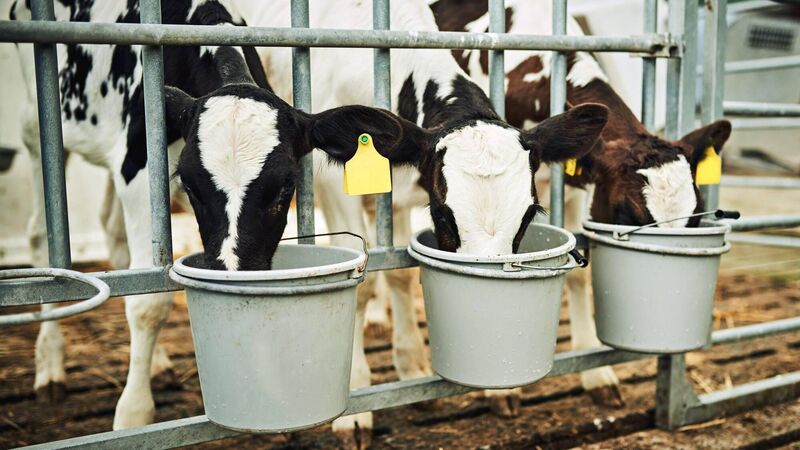Milk vs milk replacer: Weighing up the costs of calf nutrition

But there's a lot more to weighing up the options than the bare cost comparison, explains Teagasc Ruminant Nutrition Specialist Aisling Claffey.
Whole milk to feed a calf costs €3.21 per day, compared to only €1.95 for milk replacer, according to Teagasc. But there's a lot more to it than the bare comparison, explains Teagasc Ruminant Nutrition Specialist Aisling Claffey.
For example, the comparison includes a 20kg bag of milk replacer costing €52. Some might buy a cheaper replacer; for example, a €48 bag would save them €10.50 per calf, over 70 days of feeding.










